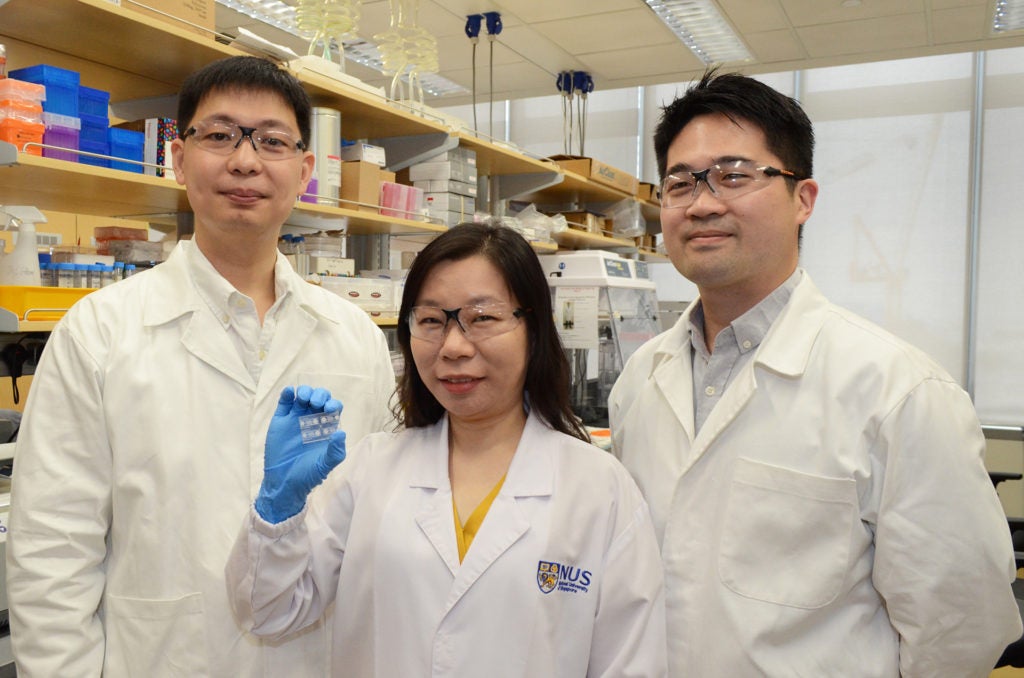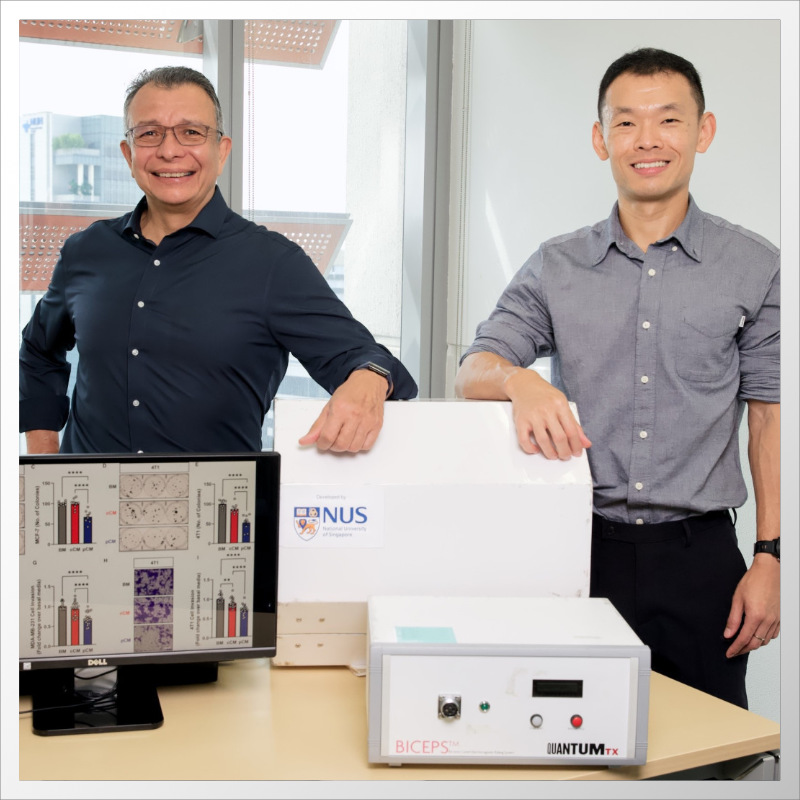New platform for point-of-care disease screening
- September 19, 2018

A multidisciplinary research team led by BIGHEART faculty Asst Prof. Shao Huilin has developed a portable and easy-to-use technology platform called enzyme-assisted nanocomplexes for visual identification of nucleic acids (enVision) for quick and accurate screening of diseases.
enVision takes between 30 minutes to one hour to detect the presence of diseases, which is two to four times faster than existing infection diagnostics methods. In addition, each test kit costs under S$1 – 100 times lower than the current cost of conducting similar tests.
“The enVision platform is extremely sensitive, accurate, fast, and low-cost. It works at room temperature and does not require heaters or special pumps, making it very portable. With this invention, tests can be done at the point-of-care, for instance in community clinics or hospital wards, so that disease monitoring or treatment can be administered in a timely manner to achieve better health outcomes,” said Asst Prof. Shao who is also an investigator with the Institute of Molecular and Cell Biology (IMCB) under the Agency for Science, Technology and Research (A*STAR).
The novel platform adopts a ‘plug-and-play’ modular design and uses microfluidic technology to reduce the amount of samples and reagents required as well as to optimise the technology’s sensitivity. In addition, test results are easily visible to the unaided eye – the assay turns from colourless to brown if a disease is present – and could also be further analysed using a smartphone for quantitative assessment. This makes enVision an ideal solution for personal healthcare and telemedicine.
The research team used the human papillomavirus (HPV), the key cause of cervical cancer, as a clinical model to validate the performance of enVision and demonstrated superior sensitivity and specificity in comparison to the clinical gold standard. For wider applications, enVision can be designed to detect a wide range of diseases – from emerging infectious diseases (e.g. Zika and Ebola) and high-prevalence infections (e.g. hepatitis, dengue, and malaria) to various types of cancers and genetic diseases.
Asst Prof. Shao and her team – including study co-first authors Dr Nicholas Ho and Dr Lim Geok Soon – took about a year and a half to develop the enVision platform. Building on the current work, the research team is developing a sample preparation module to be integrated with the enVision platform to enhance point-of-care application and improving the smartphone app for real-world application.
Please click the link below for the research article:
Please click the links below for the news articles:
Please click the link below for TV news coverage:






